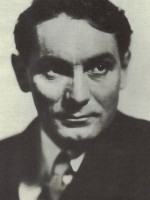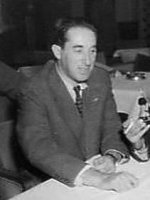Mikhail Zharov is a Actor born on 27 october 1899 at Moscow (Russie)
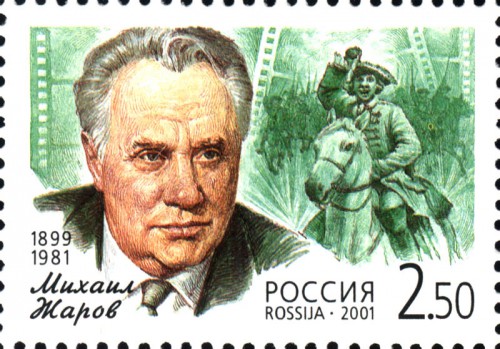
Mikhail Ivanovich Zharov (Russian: Михаи́л Ива́нович Жа́ров; 27 October 1899 – 15 December 1981) was a Soviet actor.
He studied under the prominent director Theodore Komisarjevsky and debuted in Yakov Protazanov's Aelita (1924). Later he became a Protazanov regular, appearing in The Man from the Restaurant (1927) together with Mikhail Chekhov.
In the 1930s he was a leading actor of Alexander Tairov's Chamber Theatre, before moving to the Malyi Theatre where he was engaged from 1938 till the rest of his life and most fully unfolded his actor’s gift, mainly playing classical repertoire parts (in Wolves and Sheep, The Inspector-General, Heart is not a Stone, The Thunderstorm, etc.)
Mikhail Zharov gained wide popularity thanks to the role of Zhigan in Nikolai Ekk’s internationally known drama Road to Life (1931). Playing the leader of a gang of thieves, the actor made use of the opportunities of the first sound-film: he endowed his character with a specific accent, played the guitar and sang songs with his peculiar charm. In 1933 he appeared in Boris Barnet's Okraina.
The most acclaimed of his sound films were Peter the Great (1938), in which he played Prince Menshikov, and Sergei Eisenstein's Ivan the Terrible (1942–44), in which he played Malyuta Skuratov. His last and probably most popular role was that of Aniskin, an amusing and witty village militiaman in the television series The Village Detective (1968), Aniskin & Fantomas (1974) and Aniskin Again (1978).
Zharov was awarded three Stalin Prizes: twice in 1941 and in 1942.
Source : Wikidata
Mikhail Zharov

Birth name Mikhail Ivanovich Zharov
Birth 27 october 1899 at Moscow (Russie)
Death 15 december 1981 (at 82 years) at Moscow (Russie)
Awards People's Artist of the USSR, Order of Lenin, State Stalin Prize, Order of the Red Star
Birth 27 october 1899 at Moscow (Russie)
Death 15 december 1981 (at 82 years) at Moscow (Russie)
Awards People's Artist of the USSR, Order of Lenin, State Stalin Prize, Order of the Red Star
He studied under the prominent director Theodore Komisarjevsky and debuted in Yakov Protazanov's Aelita (1924). Later he became a Protazanov regular, appearing in The Man from the Restaurant (1927) together with Mikhail Chekhov.
In the 1930s he was a leading actor of Alexander Tairov's Chamber Theatre, before moving to the Malyi Theatre where he was engaged from 1938 till the rest of his life and most fully unfolded his actor’s gift, mainly playing classical repertoire parts (in Wolves and Sheep, The Inspector-General, Heart is not a Stone, The Thunderstorm, etc.)
Mikhail Zharov gained wide popularity thanks to the role of Zhigan in Nikolai Ekk’s internationally known drama Road to Life (1931). Playing the leader of a gang of thieves, the actor made use of the opportunities of the first sound-film: he endowed his character with a specific accent, played the guitar and sang songs with his peculiar charm. In 1933 he appeared in Boris Barnet's Okraina.
The most acclaimed of his sound films were Peter the Great (1938), in which he played Prince Menshikov, and Sergei Eisenstein's Ivan the Terrible (1942–44), in which he played Malyuta Skuratov. His last and probably most popular role was that of Aniskin, an amusing and witty village militiaman in the television series The Village Detective (1968), Aniskin & Fantomas (1974) and Aniskin Again (1978).
Zharov was awarded three Stalin Prizes: twice in 1941 and in 1942.
Usually with
Filmography of Mikhail Zharov (19 films)
Actor
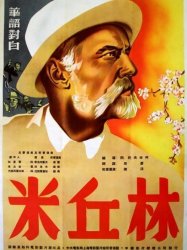
Life in Bloom (1949)
, 1h39Directed by Alexandre Dovjenko
Genres Drama, Biography
Actors Serge Bondartchouk, Iouri Lioubimov, Viktor Khokhryakov, Mikhail Zharov, Alekseï Konsovski, Klara Loutchko
Roles Khrenov
Rating57%






Happy Flight (1949)
, 1h19Genres Comedy, Musical, Romance
Themes Musical films
Actors Nikolai Kryuchkov, Mikhail Zharov, Vera Orlova, Vladimir Popov, Vladimir Popov, Evgueni Leonov
Roles Driver Zachyosov
Rating69%






Ivan the Terrible, Part I (1945)
, 1h43Directed by Sergueï Eisenstein
Origin Russie
Genres Drama, Biography, Historical
Themes Political films, Films about royalty
Actors Nikolai Cherkasov, Lyudmila Tselikovskaya, Pavel Kadotchnikov, Mikhail Zharov, Andrei Abrikosov, Vsevolod Poudovkine
Roles Maliouta Skouratov, opritchnik
Rating77%





Part I begins with Ivan's coronation as Tsar of all the Russias, amid grumbling from the boyars. Ivan makes a speech proclaiming his intent to unite and protect Russia against the foreign armies outside her borders and the enemies within - a reference to the boyars, who are already seen as discontented with his coronation. Shortly after, the scene changes to Ivan's wedding celebration in which he marries Anastasia Romanovna. This causes him to lose the friendship of his two best friends, Prince Andrei Kurbsky and Fyodor Kolychev. The latter receives Ivan's permission to retire to a monastery, while Kurbsky attempts to resume his romance with the Tsarina, who repels his advances.
 , 1h36
, 1h36Directed by Vsevolod Poudovkine, Dmitri Vassiliev
Genres Drama, War, Historical
Themes Political films
Actors Nikolai Kryuchkov, Mikhail Zharov, Olga Zhiznyeva, Vsevolod Poudovkine
Roles Globa
Rating69%






Young Fritz (1943)
, 30minutesDirected by Grigori Kozintsev, Leonid Trauberg
Genres Comedy
Actors Mikhail Zharov, Vsevolod Poudovkine, Ianina Boleslavovna Jeïmo
Roles Fritz
Rating58%






The Vyborg Side (1939)
, 2h1Directed by Grigori Kozintsev, Leonid Trauberg
Origin Russie
Genres Drama
Themes Politique, Political films
Actors Boris Chirkov, Valentina Kibardina, Mikhail Zharov, Nikolai Kryuchkov, Anatoly Kuznetsov, Vasili Merkuryev
Roles Platon Vassilievich Dymba
Rating61%





Following the Russian Revolution, Maksim is appointed state commissar in charge of the national bank. With great efforts, he learns the complexies of the banking trade and begins to fight off sabotaging underlings. Dymba, now a violent enemy of the Republic, tries to rob a wine store but is arrested with Maksim's help. Maksim also exposes a conspiracy of a group of tsarist officers who prepare an attempt against Lenin. He then joins the Red Army in its fight against the German occupation.

The Return of Maxim (1937)
Directed by Grigori Kozintsev, Leonid Trauberg
Genres Drama
Actors Boris Chirkov, Valentina Kibardina, Anatoly Kuznetsov, Mikhail Zharov, Nikolai Kryuchkov, Vasili Merkuryev
Roles Platon Vassilievich Dymba
Rating62%






Peter the First, Part I (1937)
Directed by Vladimir Petrov
Genres Drama, War, Historical
Themes Political films, Films about royalty
Actors Nikolai Cherkasov, Mikhail Zharov, Viktor Dobrovolsky, Vladimir Garine
Rating70%





Cette première représentation soviétique de Pierre le Grand a ouvert la voie à ce qui allait devenir la ligne post-révolutionnaire concernant les premiers Romanov. Des souverains comme Ivan le Terrible et Pierre le Grand étaient largement admirés pour leur dévouement à la Russie et leur détermination absolue à améliorer sa position dans le monde. Mais l'éloge des derniers Romanov, détestés, était trop en conflit avec les convictions mêmes qui avaient provoqué la révolution de 1917.

Peter the First, Part I (1937)
Directed by Vladimir Petrov
Genres Drama, War, Biography, Historical
Actors Mikhail Zharov, Nikolai Cherkasov, Viktor Dobrovolsky, Vladimir Garine
Roles Alexandre Danilovitch Menchikov
Rating70%





Cette première représentation soviétique de Pierre le Grand a ouvert la voie à ce qui allait devenir la ligne post-révolutionnaire concernant les premiers Romanov. Des souverains comme Ivan le Terrible et Pierre le Grand étaient largement admirés pour leur dévouement à la Russie et leur détermination absolue à améliorer sa position dans le monde. Mais l'éloge des derniers Romanov, détestés, était trop en conflit avec les convictions mêmes qui avaient provoqué la révolution de 1917.
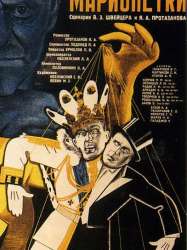
Marionettes (1934)
, 1h37Directed by Yakov Protazanov
Genres Drama, Comedy
Themes Political films
Actors Sergey Martinson, Anatoli Ktorov, Nikolai Radin, Valentina Tokarskaya, Mikhail Klimov, Leonid Leonidov
Roles Head of Frontier Post
Rating62%






Outskirts (1933)
, 1h38Directed by Boris Barnet
Origin Russie
Genres Drama, War, Comedy
Themes Political films
Actors Elena Kouzmina, Nikolai Kryuchkov, Mikhail Zharov, Sergueï Komarov, Mikhaïl Yanchine, Andrei Veit
Roles Kraïevitch, un étudiant
Rating70%





1914. In a small town in a remote part of the Russian Empire, shoemakers struggle to organise against factory owners. When war comes, they are united as soldiers of the Tsar on the Eastern Front. Anka, a local girl, forges a relationship with a German POW. The film criticises war profiteers and encourages workers to reach across national lines. In 1917 the Russian Revolution comes.
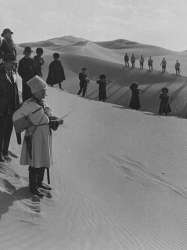
26 Commissioners (1933)
, 1h50Origin Georgie
Genres Drama, War, Historical
Actors Mikhail Zharov, Vladimir Gardine, Igor Savtchenko
Roles le menchevik
Rating62%





Au printemps 1918, la population de Bakou (Azerbaïdjan) vit des moments difficiles. La ville est coupée du reste du pays. La faim commence à sévir et la situation se complique encore avec l'attaque des armées germano-turques. Les mencheviks cherchent à composer avec les troupes anglaises. Les bolcheviks dénoncent cette attitude comme une trahison. Soutenues par les Anglo-américains, les armées anti-révolutionnaires prennent la direction de Bakou et font arrêter et déporter dans le désert du Turkménistan vingt-six commissaires bolcheviks. Ceux-ci sont ensuite exécutés.
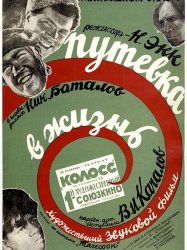
Road to Life (1931)
, 1h45Directed by Nikolai Ekk
Origin Russie
Genres Drama
Themes Films about education, Films about children, Films about the labor movement, L'enfance marginalisée
Actors Nikolai Batalov, Mikhail Zharov, Rina Zelionaïa
Roles Fomka Zhigan, chef des enfants des rues
Rating68%





Les enfants orphelins volent, se prostituent et peuvent parfois tuer. Aussi il est décidé d'organiser une rafle pour les empêcher de vivre dans la rue. Mais pour éviter qu'ils s'échappent comme à l'accoutumé, un pédagogue "moderne" (joué par Nikolaï Batalov) décide de prendre le contre-pied de leurs attentes et de les laisser libres de venir travailler avec lui dans une colonie de l'est du pays. Intrigués, les enfants le suivent et découvrent les vertus du travail et la satisfaction de se voir accorder des responsabilités.

The White Eagle (1928)
Directed by Yakov Protazanov
Origin Russie
Genres Drama, Historical
Actors Anna Sten, Mikhail Zharov
Roles le fonctionnaire
Rating63%





À l'époque tsariste, lors d'une manifestation, un gouverneur fait tirer sur la foule, qui comprenait femmes et enfants, ce qui lui vaut d'être décoré par le tsar de l'Ordre de l'Aigle blanc. Mais cela lui vaut aussi les reproches de la ville et de sa propre famille…
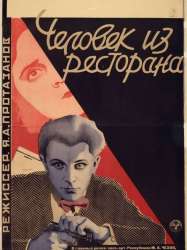
The Man from the Restaurant (1927)
, 1h2Directed by Yakov Protazanov
Actors Michael Chekhov, Mikhail Zharov, Igor Ilinski, Vera Malinovskaya, Mikhail Klimov
Rating66%





 Connection
Connection

